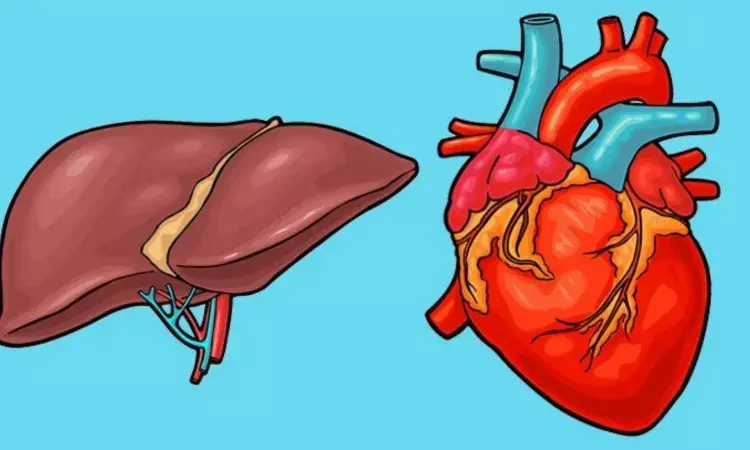- Home
- Medical news & Guidelines
- Anesthesiology
- Cardiology and CTVS
- Critical Care
- Dentistry
- Dermatology
- Diabetes and Endocrinology
- ENT
- Gastroenterology
- Medicine
- Nephrology
- Neurology
- Obstretics-Gynaecology
- Oncology
- Ophthalmology
- Orthopaedics
- Pediatrics-Neonatology
- Psychiatry
- Pulmonology
- Radiology
- Surgery
- Urology
- Laboratory Medicine
- Diet
- Nursing
- Paramedical
- Physiotherapy
- Health news
- Fact Check
- Bone Health Fact Check
- Brain Health Fact Check
- Cancer Related Fact Check
- Child Care Fact Check
- Dental and oral health fact check
- Diabetes and metabolic health fact check
- Diet and Nutrition Fact Check
- Eye and ENT Care Fact Check
- Fitness fact check
- Gut health fact check
- Heart health fact check
- Kidney health fact check
- Medical education fact check
- Men's health fact check
- Respiratory fact check
- Skin and hair care fact check
- Vaccine and Immunization fact check
- Women's health fact check
- AYUSH
- State News
- Andaman and Nicobar Islands
- Andhra Pradesh
- Arunachal Pradesh
- Assam
- Bihar
- Chandigarh
- Chattisgarh
- Dadra and Nagar Haveli
- Daman and Diu
- Delhi
- Goa
- Gujarat
- Haryana
- Himachal Pradesh
- Jammu & Kashmir
- Jharkhand
- Karnataka
- Kerala
- Ladakh
- Lakshadweep
- Madhya Pradesh
- Maharashtra
- Manipur
- Meghalaya
- Mizoram
- Nagaland
- Odisha
- Puducherry
- Punjab
- Rajasthan
- Sikkim
- Tamil Nadu
- Telangana
- Tripura
- Uttar Pradesh
- Uttrakhand
- West Bengal
- Medical Education
- Industry
Tafamidis delays myocardial amyloid progression in transthyretin amyloid cardiomyopathy patients: Study

Austria: Treatment with tafamidis delays myocardial amyloid progression in patients with transthyretin amyloid cardiomyopathy (ATTR-CM), a recent study has found. This results in functional, structural, and clinical benefits compared to the natural course. Findings of this study, published in the European Heart Journal - Cardiovascular Imaging, indicate that serial cardiac magnetic resonance (CMR) including measurement of extracellular volume (ECV) may be suitable for disease-specific therapy monitoring.
Previous studies have shown tafamidis to be associated with improved outcomes in ATTR-CM patients. However, whether tafamidis affects cardiac amyloid deposition and structural changes in the myocardium is not yet known. Diana Bonderman, Medical University of Vienna, Waehringer Guertel Vienna, Austria, and colleagues, therefore, aimed to determine disease-modifying effects on myocardial amyloid progression and to identify imaging parameters that could be applied for specific therapy monitoring.
For the study, ATTR-CM patients underwent serial CMR imaging using T1 mapping techniques to derive ECV.
The study revealed the following findings:
- Patients receiving tafamidis 61 mg (n = 35) or 20 mg (n = 15) once daily showed stable measurements at follow-up (FU) {61 mg: 9.0 months, 20 mg: 11.0 months} in left ventricular (LV) ejection fraction (LVEF; 61 mg: 47.6% vs. 47.5%, P = 0.935; 20 mg: 52.4% vs. 52.1%), LV mass index (LVMI; 61 mg: 110.2 vs. 106.2 g/m2, P = 0.304; 20 mg: 114.5 vs. 115.4 g/m2), and ECV (61 mg: 47.5% vs. 47.7%; 20 mg: 56.7% vs. 57.5%), whereas treatment-naïve ATTR-CM patients (n = 19) had clear signs of disease progression at the end of the observation period [12.0 months; LVEF: 53.3% vs. 45.7%; LVMI: 98.9 vs. 106.9 g/m2; ECV: 49.3% vs. 54.6%].
- The between-group comparison at FU revealed positive effects in tafamidis 61 mg-treated compared to treatment-naïve patients, while those treated with 20 mg showed no difference in the above LV measurements when compared with treatment-naïve.
- Both treatment groups showed clinically beneficial effects compared to the natural course [61 mg, 6-min walk distance (6-MWD), N-terminal prohormone of brain natriuretic peptide (NT-proBNP); 20 mg, 6-MWD, NT-proBNP].
"Tafamidis delays myocardial amyloid progression in ATTR-CM patients, resulting in structural, functional, and clinical benefits compared to the natural course," wrote the authors.
Reference:
René Rettl, Christopher Mann, Franz Duca, Theresa-Marie Dachs, Christina Binder, Luciana Camuz Ligios, Lore Schrutka, Daniel Dalos, Matthias Koschutnik, Carolina Donà, Andreas Kammerlander, Dietrich Beitzke, Christian Loewe, Silvia Charwat-Resl, Christian Hengstenberg, Johannes Kastner, Roza Badr Eslam, Diana Bonderman, Tafamidis treatment delays structural and functional changes of the left ventricle in patients with transthyretin amyloid cardiomyopathy, European Heart Journal - Cardiovascular Imaging, 2021;, jeab226, https://doi.org/10.1093/ehjci/jeab226
Dr Kamal Kant Kohli-MBBS, DTCD- a chest specialist with more than 30 years of practice and a flair for writing clinical articles, Dr Kamal Kant Kohli joined Medical Dialogues as a Chief Editor of Medical News. Besides writing articles, as an editor, he proofreads and verifies all the medical content published on Medical Dialogues including those coming from journals, studies,medical conferences,guidelines etc. Email: drkohli@medicaldialogues.in. Contact no. 011-43720751


